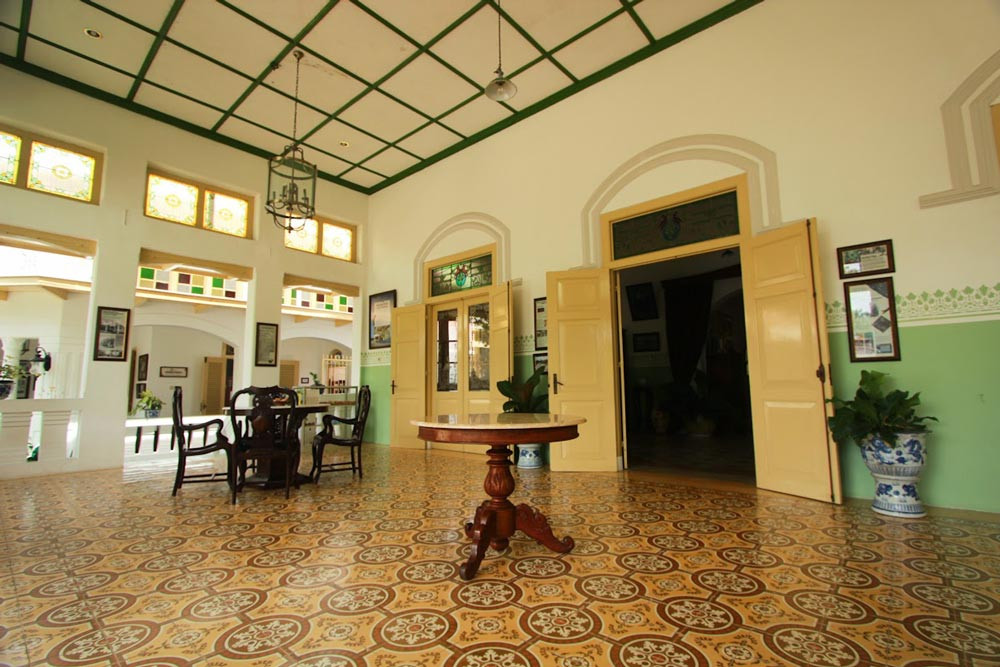Popular Reads
Top Results
Can't find what you're looking for?
View all search resultsPopular Reads
Top Results
Can't find what you're looking for?
View all search resultsTracing Javanese family’s multicultural heritage at Roemah Martha Tilaar
Roemah Martha Tilaar was a childhood home to Martha Tilaar, the founder of Sari Ayu, one of the country’s most popular cosmetic brands.
Change text size
Gift Premium Articles
to Anyone
N
owadays Gombong, a small city in Kebumen regency, Central Java, offers a lot new tourist spots, including a “time machine” that can give its visitors insights into the city in the 1920s.
This “time machine” is a museum located on Jl. Sempor Lama No. 28 called Roemah Martha Tilaar.
This museum was a childhood home to Martha Tilaar, the founder of Sari Ayu, one of the country’s most popular cosmetic brands.
As a home to Javanese family of Chinese descent who lived there during the Dutch colonial period, Martha’s house was heavily influenced by Chinese, Dutch and Javanese culture -- a perfect representation of Gombong’s multicultural population at that time.
Being the first museum in Gombong, Roemah Martha Tilaar showcases antique furniture from Martha’s childhood, her family photos, pandanus leaves weaving artworks from local artists and tools to make jamu (traditional herbal medicine).
The museum also sells souvenirs, coffee and cosmetics and provides tours to historical places around the city.
Read also: Explore a different side of Indonesia in these museums
Built in the 1920s by Martha’s grandfather, Liem Siauw Lam, the house was abandoned for nearly 40 years before it was restored and reopened as a museum in 2014, according to the treasurer Annisa Qurani.
Annisa said that the house was built in the Indische Empire style, a popular architectural style that flourished during the Dutch colonial era in Indonesia.
“Dutch influences can clearly be seen in the house’s high ceilings and symmetrical pillars, large terraces and the three front doors,” Annisa told The Jakarta Post while giving a tour around the museum.
Stepping inside, the house was filled with furniture that featured a mix of Dutch, Chinese and Javanese influences.
Chinese influence can be seen throughout the house through the Chinese altar cabinet, antique vases and paintings. Meanwhile the touch of Javanese culture can be seen in cabinets, mirrors and bedposts embellished with Javanese wood carvings and traditional mortars to make jamu.
Inside the main house and east pavilion, visitors could see Martha’s family photographs from the 1920s to 1960s and her family bedrooms, working rooms and dining rooms that were restored to look like their original designs from the 20s.
In the corridor of the main building, visitors could also look at Martha’s family tree starting from her great grandfather, Liem Seng, a merchant who came from Xian Men, China.
Meanwhile, the new west pavilion consists of a multifunctional hall and a coffee shop that also sells cosmetics and handicrafts.
Since opening to the public in 2014, the museum has attracted a lot visitors from Indonesia and abroad. Annisa said around 200 visitors come to Roemah Martha Tilaar each month.
Visitors only need to pay Rp 15,000 (US$1.05) to enjoy guided tours inside the museum.
Besides offering tours, the museum is also used for wedding ceremonies, family gatherings and local community activities.
“Bu Martha Tilaar wished to contribute to the city she was born in and help the local economy. The museum helps to preserve local history and culture, sell handicrafts from local artist and provide free spaces for local communities,” added Annisa. (nal/kes)







